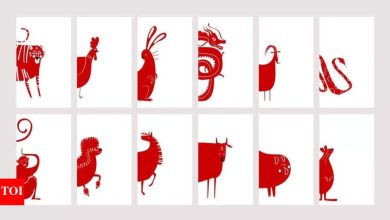Forgotten? The fate of German citizens kidnapped abroad

The recent video of a German nurse, who was kidnapped in Somalia about seven years ago, made the fate of the kidnapped Germans in the headlines.
Sonja N.* Somalia was abducted by armed men about seven years ago. At that time, the German nurse was working for the International Red Cross. A video recently emerged to show him and his appeal from the German government and his family, so that they could do everything to release him. He said that his health was deteriorating rapidly.
Hundreds of German citizens have been kidnapped abroad in the last decades. It is difficult to establish how many currently being held at present, there are hardly any figures. The most recent figures have been from 2019 when the German government announced that 143 Germans were abducted in 37 countries between 2010 and 2019. Most of the cases were in Nigeria, followed by Afghanistan, Mexico, Syria and Senegal.
Crisis team takes charge
In response to the kidnapping, a crisis team is established in the Ministry of External Affairs to coordinate various agencies such as embassies, federal intelligence services and middlemen. The 85 -year -old told DW that Jurgen Krobog led such a team from 2003 to 2005.
During his active time, he dealt with the kidnapping of several German tourists abducted in Algeria and Mali while traveling in Sahara Desert in 2003. Crodog recalls that the close relationship between the Malian President and the Tuaregs on the ground was a decisive factor.
Eagerly, Korbogs abducted in Yemen with their family a few months after their retirement in 2005. He got caught in a tribal quarrel, which was fortunately resolved and the family was freed.
Wide range of victims
In most cases, of course, it is not a “professional” like Crrob even that find themselves in the clutches of non-state or even state actors. The aggrieved nurses, priests, aid workers, disgruntled or simply random tourists. In 2000, the German Walrt family was abducted along with other tourists during the Easter holiday in Malaysia. The rebel group Abu Sayef took him to the island of Philippine in Jolo. The matter stood out because the terrorists repeatedly invited journalists to film hostages to their jungle place and interview the kidnappers. After his release months later, Walrts became one of the most famous families in Germany.
Sometimes those who are free speak later and report on their experience. This is the only way that some kidnapping cases are known, as the Ministry of External Affairs observes a rigorous non-discourse policy.
Recently a case was of Roman Catholic pastor Hans-Jochem Lohre, who disappeared on his way in November 2022 to celebrate a celebration in Mali. It took him about a year to release. In an interview with DW, he recalls the moment of his kidnapping: “Somebody grabbed me from behind and pulled me to the back seat of a Mercedes. And then we were on our way. It did not take more than five or ten seconds.”
He said that he quickly realized that he had to find a strategy of existence: “I told myself: I have to give meaning to this time of captivity, whether he lives for one, two or five years,” he says. He prayed several times a day and even tried to talk to his kidnappers, a group of jihadis, religion. He was successful after a year of conversation to leave him – but he really doesn’t know how. However, he was happy to know that the president of Mali’s High Islamic Council also prayed for his release and he feels that it helped deepen the Muslim-Christian dialogue.
Many kidnappers are non-state actors-members of ethnic or religious splatter groups, or some of the tribes that are engaged in conflict. However, there are also cases where governments become criminals, as in the case of Iran, which has repeatedly imprisoned German citizens, sometimes with dual citizenship in Iran. One case is Jahshid Shamers, who was abducted from Dubai to Iran, was imprisoned for four years and finally executed in October 2024.
Quiet diplomacy
German hostage in Iran was a happy consequence of Nahid Tagvi’s imprisonment; He was released in January.
Human rights organization Havor worked on behalf of Tagvi. Maryam Kleran works for Havor – and is also personally affected, Nahid Tagvi is her mother. “When an ruling state arrests/kidnaps someone, you are initially in the dark. And I advise from my own experience – and we also suggest it as an NGO – it is very important to go public immediately,” Kleran said. Because the promotion protects the prisoner: Over time, with more public pressure, Nahid Tagvi got the better prison position and the medicine.
Maryam Kleran worked closely with the Ministry of External Affairs to release her mother, and she is grateful to her help. At the same time, however, he is also important for the principle of cool diplomacy of Germany: “is a special messenger for hostages abroad in the US. In France, they talk about holding hostage publicly,” Kleran says. “To be fair, I have to say that it has done this work. My mother was freed. But I was often left alone,” she says.
This is another reason that the video of a German nurse kidnapped in Somalia echoed with him. “I found the video shocking. If she was my mother, I would have gathered everyone.” Kleran says. This, she says, acts to increase pressure and ensure that the victim does not forget.




